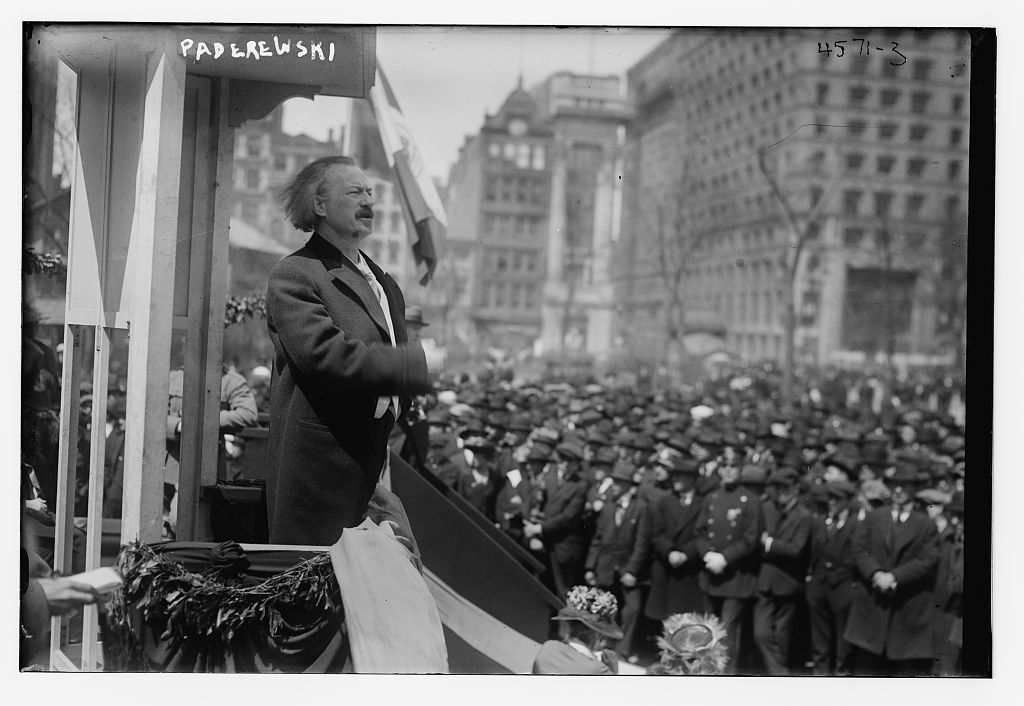Woodrow Wilson and Poland’s Independence
Chapter 8: Determined to Seek Self-Determination for All

Photo: Ignacy Jan Paderewski speaking to crowd. Bain News Service, Publisher. Paderewski. , ca. 1915. [Between and Ca. 1920] Photograph. Library of Congress Prints and Photographs Division Washington, D.C. https://www.loc.gov/item/2014706883/.
President Wilson continued to promote self-determination after the U.S. entered the war during April 1917. Without making any reference to Poland, Wilson informed the Provisional Government of Russia that We are fighting for the liberty, the
self-government, and the undictated developments of all peoples.
Yet Wilson’s message made clear that he would not allow Russia to obtain via a peace treaty the German and Austrian partition of Poland. With Russia becoming more involved with internal struggles and withdrawing itself from the war effort, Wilson would not have to deal much with Russia in any future discussion of an independent Poland.
Wilson, however, had to deal with the biggest obstacle in Polish independence:
Germany. To House, peace with Germany became hopeless because the Kaiser took the
gambler’s chance
that they could hold on to their conquered territory, including Russian
Poland. Therefore, both men agreed that Wilson should give a speech on Flag Day 1917
to drum up American support for the war. In the Flag Day Address,
given on 14 June
1917, the President stated that the U.S. must fight the German plan to throw a broad belt of military power and political control
over Central Europe, to the Mediterranean and into Asia without regard to [t]he choice of peoples.
As he did in the Peace without Victory
speech, Wilson mentioned Poland as being a victim of German aggression but he also included mention of Belgium, France, and Serbia.
Wilson wanted to continue the policy of retaining unity among all. With his country now at war, Wilson absolutely could not have division among Americans. Favoring one ethnic group‘s wishes over that of another could not be shown by the U.S. Government. Paderewski, however, made this principle difficult for Wilson to retain.